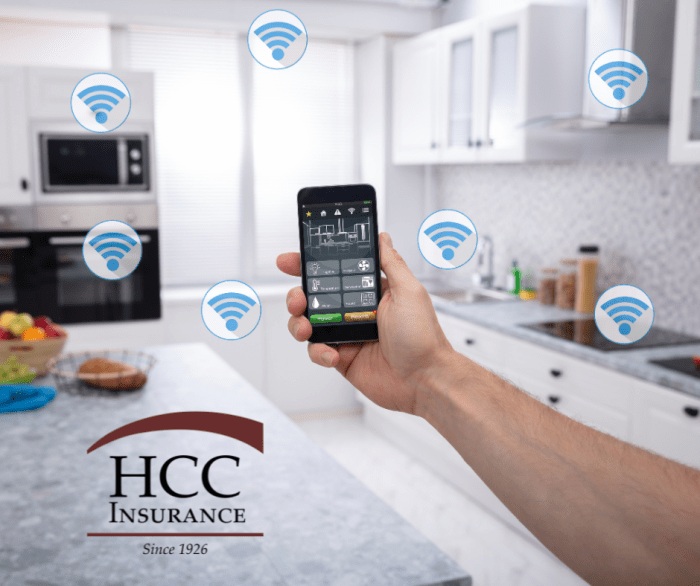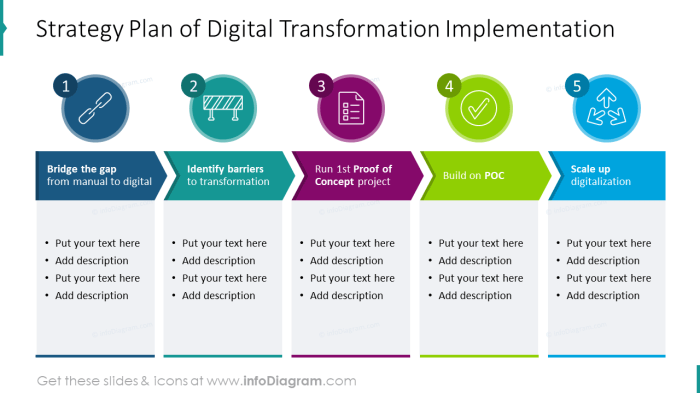Do Smart Homes Lower Your Homeowners Insurance?
Exploring the impact of smart homes on homeowners insurance, this introduction sets the stage for a detailed discussion on how technology can influence insurance premiums.
Smart homes have revolutionized the way we live, offering convenience and security. But how do these advancements affect the cost of protecting our homes? Let's dive in to find out.
Introduction
Smart homes, equipped with various interconnected devices and systems that can be controlled remotely, have become increasingly popular in recent years. Homeowners insurance, on the other hand, is a policy that provides financial protection in the event of damage or loss to a home or its contents.
The relationship between smart homes and homeowners insurance lies in the potential impact that smart home technology can have on insurance premiums. By enhancing security, reducing risks, and enabling quicker responses to emergencies, smart homes can lead to lower insurance costs for homeowners.
How Smart Home Technology Impacts Insurance Premiums
Smart home technology, such as security cameras, smart locks, smoke detectors, and water leak sensors, can significantly reduce the risk of theft, vandalism, fire, and water damage in a home. Insurance companies often offer discounts or lower premiums to homeowners who invest in these devices, as they can help prevent or mitigate potential losses.
In addition, smart home systems that allow for remote monitoring and control can provide homeowners with peace of mind and enable them to respond promptly to emergencies, potentially minimizing the extent of damage and reducing insurance claims. Overall, the integration of smart home technology can lead to a safer and more secure living environment, which insurance companies view favorably when determining premiums.
Benefits of Smart Homes for Insurance
Smart homes offer a range of features that can help lower homeowners insurance costs by reducing risks and increasing safety measures. From security cameras to leak detectors, these devices play a crucial role in protecting your home and belongings.
Security Cameras
- Installing security cameras can deter potential burglars and provide evidence in case of a break-in, leading to lower insurance premiums.
- Remote access to live camera feeds allows homeowners to monitor their property from anywhere, alerting them to any suspicious activity.
- In the event of a claim, recorded footage from security cameras can help speed up the insurance process by providing clear evidence of the incident.
Leak Detectors
- Smart leak detectors can detect water leaks and alert homeowners in real-time, preventing potential water damage that could lead to costly insurance claims.
- By quickly identifying leaks, homeowners can take necessary actions to mitigate the damage and minimize insurance risks.
- Some insurance companies offer discounts for properties equipped with smart leak detection systems, recognizing the proactive measures taken to prevent water-related incidents.
Remote Monitoring and Control Systems
- Smart home systems that allow remote monitoring and control of various devices, such as thermostats and lights, can give the appearance that someone is home even when the house is empty, reducing the risk of break-ins.
- By remotely adjusting settings and receiving alerts on smartphone apps, homeowners can respond quickly to potential threats or emergencies, minimizing damage and insurance claims.
- Insurance providers may offer discounts for homes equipped with remote monitoring systems, as they demonstrate a proactive approach to home security and risk prevention.
Insurance Companies and Smart Home Discounts

Smart home technology has become increasingly popular in recent years, not only for its convenience but also for the potential savings it can offer on homeowners insurance. Many insurance companies now offer discounts to homeowners who have smart home devices installed in their properties.
These discounts are meant to incentivize the adoption of smart technology and reduce risks associated with home maintenance and security.
Insurance Providers Offering Discounts for Smart Home Installations
- State Farm: State Farm offers discounts for homeowners who have smart home devices such as security systems, smoke detectors, and water leak detectors installed in their homes.
- Allstate: Allstate provides discounts for customers who have smart home devices like security cameras, smart thermostats, and doorbell cameras installed in their homes.
- Liberty Mutual: Liberty Mutual offers discounts for policyholders who have smart home devices for security, water leak detection, and fire prevention.
Process of Claiming Discounts for Having a Smart Home
- Contact your insurance provider: Reach out to your insurance company to inquire about the discounts they offer for smart home installations. They will provide you with the necessary information and requirements to qualify for the discount.
- Installation verification: You may need to provide proof of installation of the smart home devices to your insurance company. This can include receipts, photos, or a verification from the installation company.
- Adjustment to policy: Once your insurance company verifies the installation of the smart home devices, they will make the necessary adjustments to your policy to apply the discount. You should see a reduction in your premium thereafter.
Risks and Limitations

Smart home technology offers numerous benefits, but it also comes with its own set of risks and limitations that homeowners need to consider before investing in these systems. Understanding these potential drawbacks can help homeowners make informed decisions about whether smart home features are right for them.
Potential Risks
- Privacy Concerns: Smart home devices collect a significant amount of data about the occupants of the house, which could potentially be hacked or compromised, leading to privacy violations.
- Security Vulnerabilities: As with any connected technology, smart home devices are susceptible to hacking, leaving homes vulnerable to cyber attacks and intrusions.
- Reliability Issues: Smart home systems rely on internet connectivity and may malfunction if there are issues with the network, leading to potential disruptions in service.
Limitations in Insurance Coverage
- Exclusions: Some insurance policies may have specific exclusions related to smart home features, limiting coverage for certain types of damages or incidents.
- Requirements: Insurance companies may have specific requirements for smart home systems to qualify for discounts, such as professional installation or ongoing maintenance, which could be costly for homeowners.
Examples of Situations
- High Cost of Installation: In some cases, the initial cost of installing smart home devices may outweigh the potential savings on insurance premiums, especially for homeowners on a budget.
- Non-Standard Features: Insurance companies may not offer discounts for certain smart home features that are not considered standard or essential for risk mitigation.
Data Privacy and Security Concerns
Smart homes offer convenience and efficiency, but they also raise concerns about data privacy and security. With various devices connected to the internet, there is a risk of unauthorized access to personal information and potential cyber attacks. This poses a significant challenge for homeowners and insurance companies alike.
Importance of Data Privacy and Security
Maintaining data privacy and security in smart homes is crucial to protect sensitive information from being compromised. Hackers can exploit vulnerabilities in smart devices to gain access to personal data or even control home systems remotely. This can lead to privacy breaches, financial loss, and physical security risks for homeowners.
- Regularly update software and firmware to patch security vulnerabilities.
- Use strong, unique passwords for all smart devices and networks.
- Enable two-factor authentication for an added layer of security.
- Monitor network activity and look out for any suspicious behavior.
- Secure home Wi-Fi networks with encryption and change default settings.
Insurance Companies and Cybersecurity Risks
Insurance companies are aware of the cybersecurity risks associated with smart home devices and take measures to address them. Some insurers offer cybersecurity coverage as an add-on to homeowners policies to protect against data breaches and cyber attacks. Additionally, insurance companies may require homeowners to meet certain security standards to qualify for coverage or discounts.
- Partner with reputable smart home device manufacturers that prioritize security.
- Conduct regular security assessments and audits to identify and mitigate risks.
- Educate policyholders on best practices for securing smart home devices.
- Offer cybersecurity resources and support to homeowners to enhance protection.
- Collaborate with cybersecurity experts to stay updated on emerging threats and trends.
Mitigating Security Vulnerabilities
Homeowners can take proactive steps to mitigate security vulnerabilities in their smart homes and maintain insurance benefits. By implementing strong security measures and staying vigilant, homeowners can reduce the risk of cyber attacks and protect their personal information.
- Invest in reputable smart home devices with built-in security features.
- Secure home networks with firewalls, antivirus software, and network monitoring tools.
- Regularly update device software and firmware to patch security flaws.
- Limit access permissions for smart devices and only connect necessary systems to the internet.
- Stay informed about cybersecurity best practices and trends to adapt security measures accordingly.
Last Point
In conclusion, the discussion on smart homes and homeowners insurance sheds light on the potential benefits and risks associated with embracing this technology. By understanding the relationship between the two, homeowners can make informed decisions to protect their homes and loved ones.
Query Resolution
Do smart homes always lead to lower homeowners insurance premiums?
While smart home features can often result in discounts, the actual impact on insurance premiums may vary depending on the insurance provider and specific circumstances. It's best to consult with your insurance company for personalized information.
Are there any privacy concerns with using smart devices to lower insurance costs?
Privacy is a valid concern with smart home technology. Homeowners should ensure that their data is protected and that they understand how their information is being used by both the devices and insurance companies.
Can installing smart home devices increase the value of my home?
While smart home technology can enhance the overall value and appeal of a home, its direct impact on property value may vary. Factors such as market trends and buyer preferences play a significant role in determining the value of a home with smart features.




